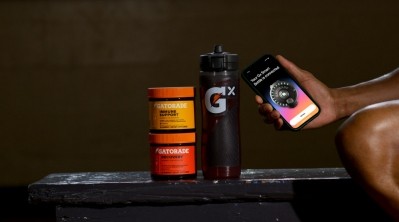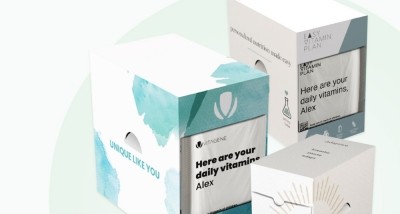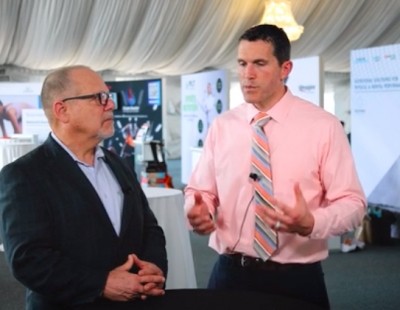How personalized nutrition is driving the sports ecosystem

Next month brands, researchers, and sports nutrition professionals will gather in San Diego examine sports nutrition from a variety of angles. One such angle is the fascinating area of personalized nutrition. Adapting the one-size-fits-all dietary guidelines to customize the diets of athletes is a common practice among sports nutritionists–but not every athlete is at the level that comes with a dietician.
At the upcoming Sports & Active Nutrition Summit, our personalized nutrition panel will delve into how an individual's dietary and supplement intake can influence their physical performance and what tools can be used to measure it.
The panel will also delve into some key trends and innovations, what’s capturing consumer interest and explore how companies can engage in this personalized revolution.
Getting personal with AI
Ali Mostashari, PhD, co-founder of LifeNome, a precision health AI company headquartered in New York City, explained that the one-size-fits-all guidelines for sports nutrition disregard significant individual differences in nutrient processing and do not allow an individual to optimize their sports performance.
“The ability of AI to develop personalized nutritional needs assessments and then analyze which ingredients have the highest effectiveness and lowest risk for an individual, opens the doors to highly personalized nutrition products and services,” said Mostashari, who will kick off the personalized nutrition segment with a presentation focused on artificial intelligence in sports nutrition. Following his presentation, Mostashari will join a panel to further discuss this exciting area.
Esteemed panel
“I will be highlighting how systems biology and AI are now enabling significant personalization capabilities we couldn't dream of before and map out different ways companies can go about biology-based and AI-enhanced personalization in the decade to come.” –Ali Mostashari, PhD, co-founder of LifeNome
“I will discuss the latest science of exercise recovery and how to optimize nutrition to improve individual outcomes.” –Brian McFarlin, PhD, FACSM, Associate Dean for Research & Undergraduate Studies, Professor in Exercise Physiology / Nutrition, Professor in Biological Sciences, Co-Director Applied Physiology Laboratory, University of North Texas.
“I’ll be speaking on the latest science in personalized nutrition and why it’s so important that brands focus on the person holistically. Asking consumers thoughtful questions to better understand them is essential when building a personalized program. Long gone are the one-size-fits all days and this not only includes physical products, but digital products as well.” –Diana Morgan, MS, CISSN, Head of Scientific & Regulatory Affairs, Care/of
“Due to my CPG background, I will be staying in my lane and mostly speaking to the mass commercialization trends. While the science is evolving fast every day and it’s extremely exciting, the concept of personalized nutrition is still very Jetsons-esque to most consumers without proper messaging." –Joshua Schall, Owner & President, J. Schall Consulting
What athletes want
Our experts will weigh in on how to succeed in this emerging and exciting space by understanding what athletes are asking for–and expecting.
Dietary restrictions
“With almost one-third of Americans following some sort of special diet, whether it’s gluten-free, soy-free, milk-free, plant-based, etc., sports nutrition brands are finding great alternatives to cater to their customers. Protein is a perfect example. It’s a staple supplement for anyone into fitness, and brands are coming out with really great tasting and macro friendly non-whey alternatives to help support fitness routines,” said Morgan.
Dosage
“I see a lot more emphasis on optimized nutrition to support specific individual conditions. For instance, some individuals can get by with a basic daily dose, while others need a modified dosing pattern. As we learn more about how an individual responds to a given ingredient, we learn more about how to optimize dosing,” McFarlin said.
Athletic profile
“Athletes want to optimize their current performance while ensuring longer term sustainable performance capability and injury prevention. This requires a good understanding of their unique muscle structure and power/endurance profile, as well as injury potentials for ligaments and tendons which are highly genetic in nature. Having that information combined with an understanding of their metabolism allows for optimizing their training and diet for their unique needs,” noted Mostashari.
Weekend warrior
“An athlete (especially at the highest levels) already knows personalization in all aspects of ‘game day’ preparation is the key to unlocking greatness. What’s more exciting for me is that the weekend warrior that makes up the much larger active nutrition consumer cohort is also starting to realize that a one-size-fits-all approach isn’t going to cut it. It’s the “I want to be like Mike Effect” that’s playing out decades later after the viral Gatorade ad. You’re starting to see a higher frequency of wearables usage throughout daily life and normalization of at-home testing partially stemming from the ‘COVID-19 Effect’ that’s helping push personalized nutrition forward. In my opinion, this is all interconnected and pushing things forward,” Schall explained.
The summit is just around the corner!
Attendees can expect to hear how personalized nutrition is changing new product development, predictions for customization in sports nutrition and some of the cutting-edge technologies that innovative companies can apply to meet the unique challenges of athletes and active individuals. For more information and to book your slot use the links below.












